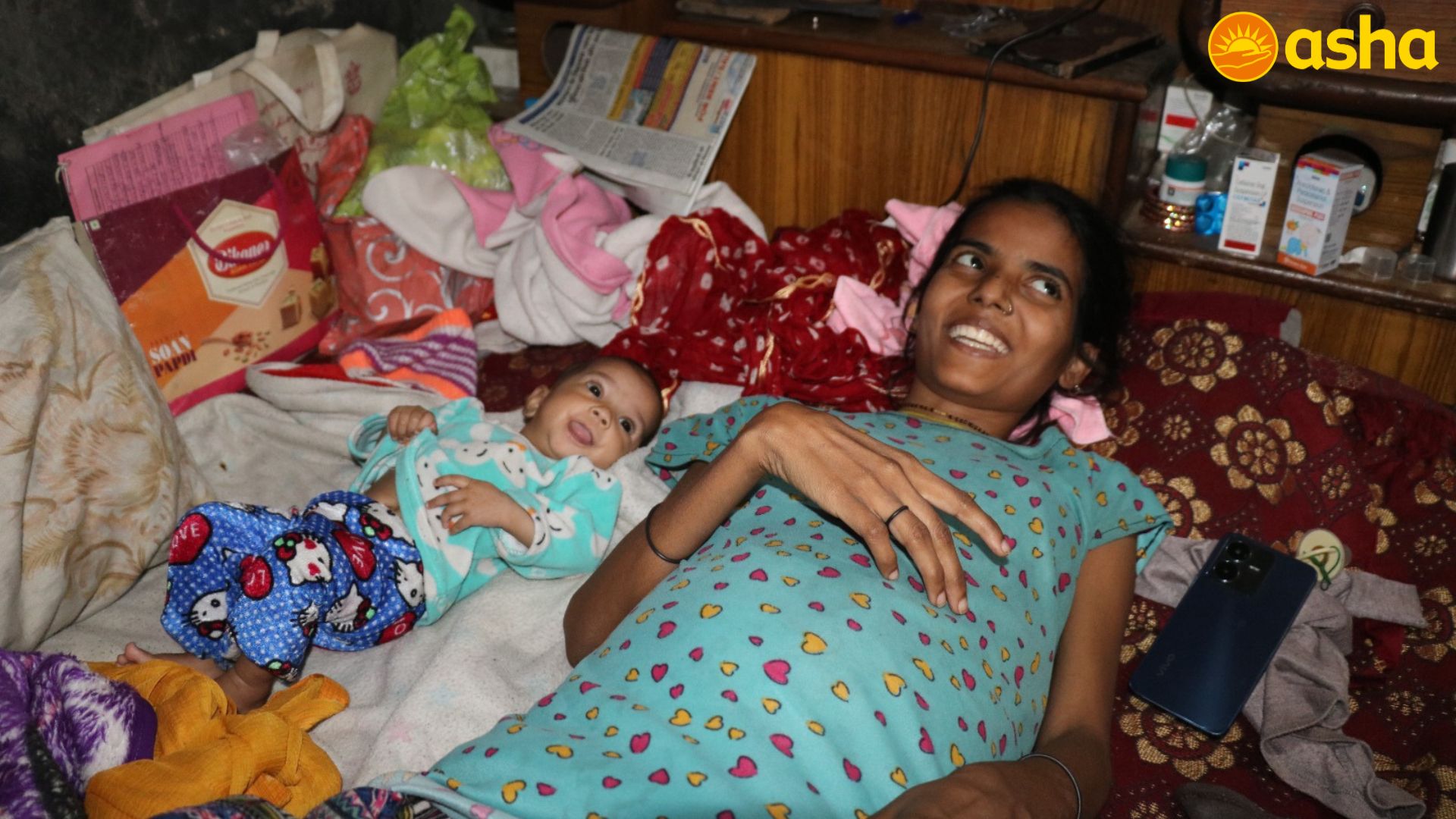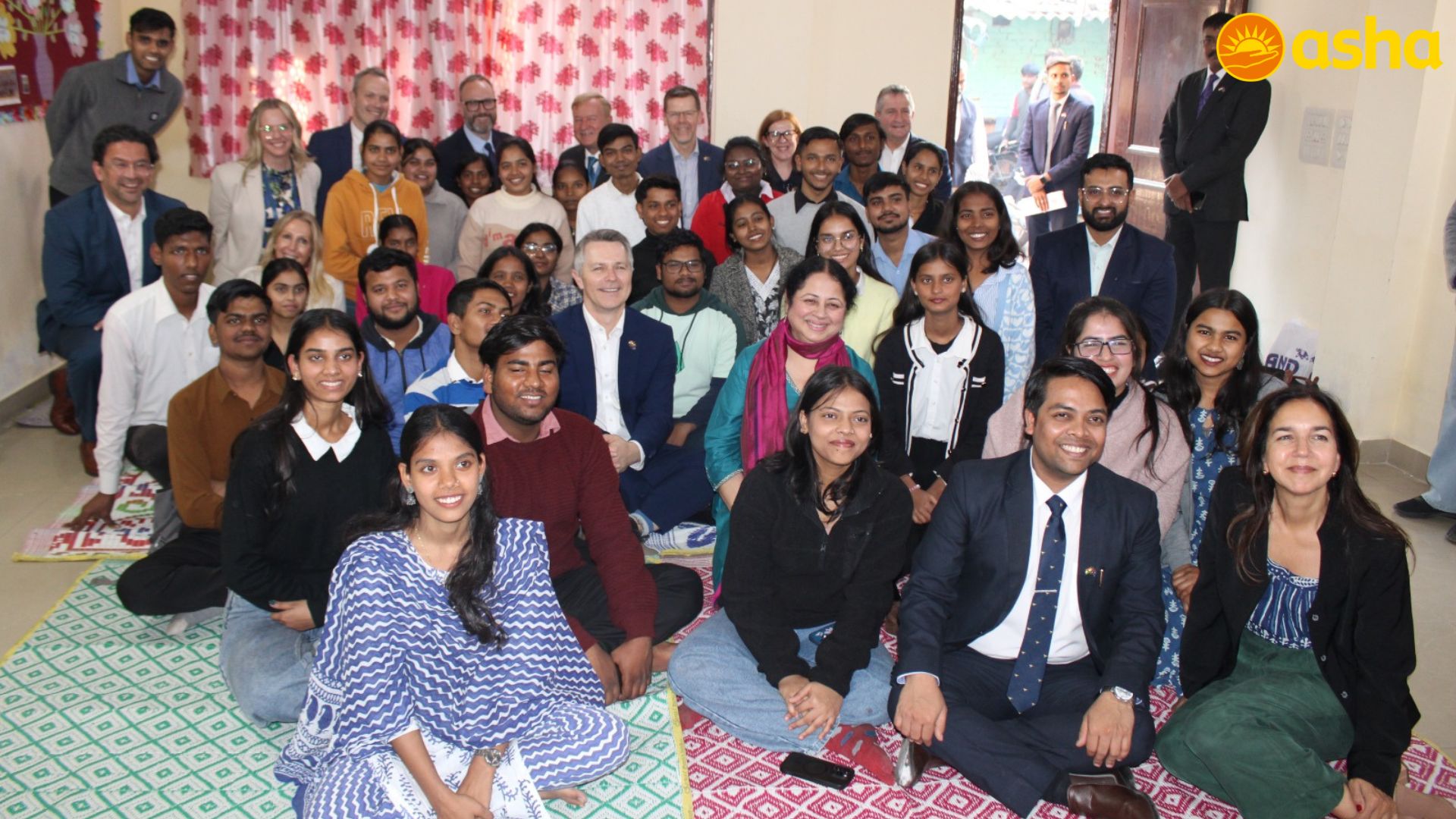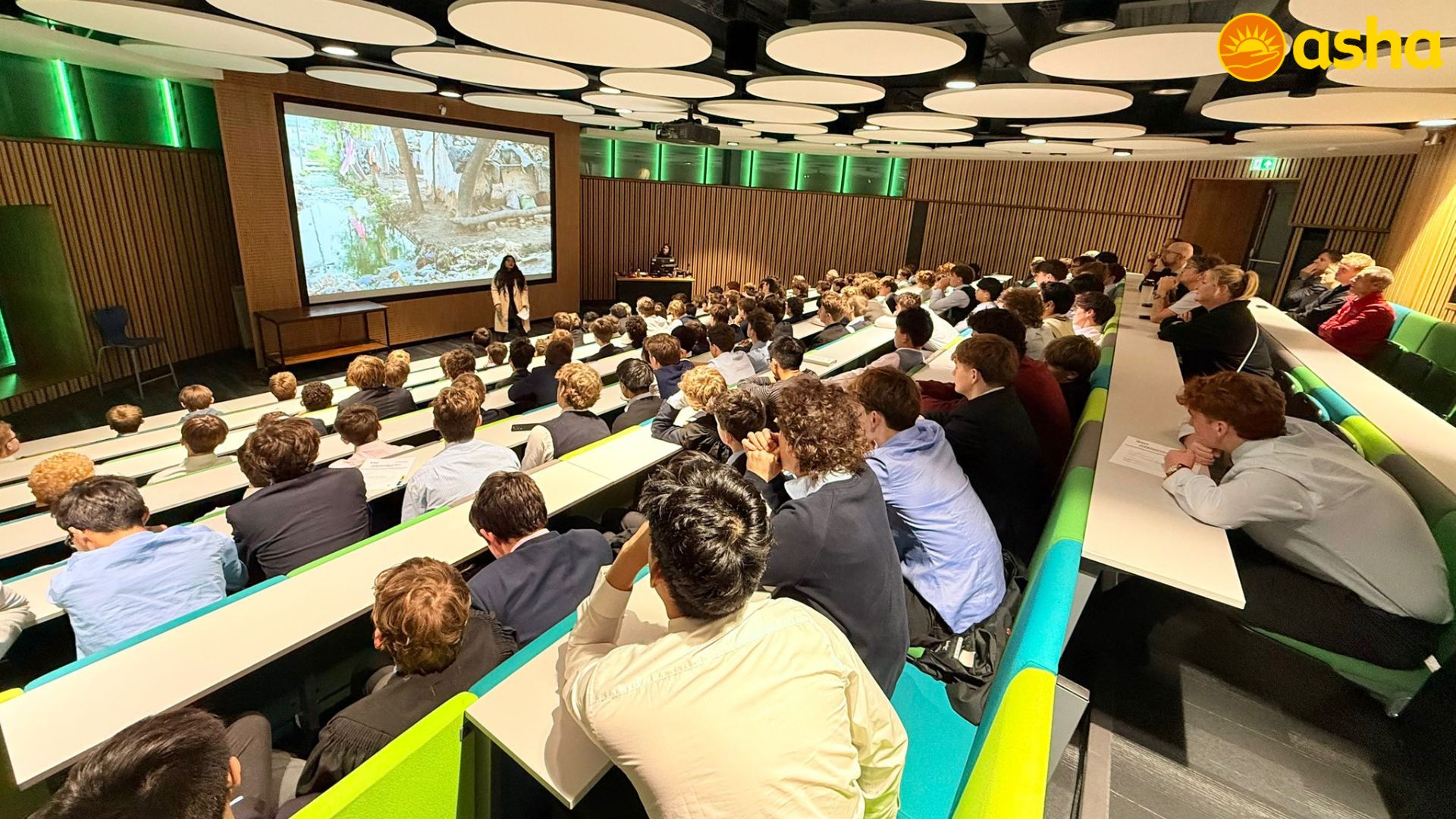There were days I thought I wouldn’t survive… that my baby wouldn’t survive. But Asha stood by me like a family—my only family.”
Sapna clutches her newborn daughter gently, her eyes welling with tears—not just from exhaustion, but from deep gratitude.
Born and raised in the narrow lanes of the Tigri slum in Delhi, 26-year-old Sapna has known nothing but hardship. Her parents had migrated from Rajasthan, dreaming of a better life in the city. But what they found was poverty wearing a different face—still as cruel, still as unrelenting. Survival became their only goal.
As a little girl, Sapna watched her parents struggle every single day. But amidst the chaos, she found a sanctuary—a place where she could just be a child. At the age of six, she discovered the Asha Centre. It quickly became the happiest part of her life. She loved doing her homework there, learning new things, and being surrounded by warmth and kindness. For her, Asha wasn’t just a centre—it was a refuge.
She studied until Class 9, her heart full of dreams. But then, reality stepped in. Her family couldn’t afford the school fees anymore. With barely enough food at home, education had to take a backseat. Malnourished and often sick, Sapna left school and began working at a small beauty parlour to help her family survive.


Marriage brought little relief. Her husband worked part-time at a nearby factory, earning less than Rs. 10,000 a month, often irregularly. When she gave birth to her first baby girl, her health declined sharply. There was no nutrition, no rest—just an endless loop of struggle.
In November 2024, she and her husband decided to try for another child. But her already fragile body was not ready. One afternoon, an Asha Community Health Volunteer found Sapna collapsed in her one-room shanty, barely able to breathe. She was rushed to the Asha Health Centre, where tests revealed her haemoglobin level was just 4—a dangerously low level. She was severely anaemic and marked as a high-risk pregnancy case.
Asha sprang into action. Iron and vitamin supplements, regular checkups, close monitoring—everything possible was done to keep her and the baby safe.
Then, tragedy struck. In the eighth month of her pregnancy, Sapna slipped and fell into a drain near her home. Her injuries were serious. She became completely bedridden. Her husband had no choice but to leave his job to care for her. With no income and no food, the family was on the edge of collapse.
But Asha never let go.
They arrived at her door with grocery packet, nutritious Nutri Laddoos packed with vital nutrients, and began daily visits. Nurse practitioners and health volunteers checked on her every day. Medicines were delivered. Calls were made late into the night to check on her condition. Asha became her lifeline.
In December 2024, Sapna gave birth to a baby girl who weighed less than 1.8 kilos—dangerously underweight. Immediate postnatal care began. Sapna, still bedridden, was diagnosed with severe Vitamin D3 and B12 deficiencies and dangerously low haemoglobin. Treatment resumed with iron, calcium, vitamin supplements. Her newborn received constant monitoring and care.
Slowly, there were signs of hope. Sapna began to regain strength. Her baby started to gain weight. The darkness began to lift.
“From Bal Mandal as a little girl to now—Asha has always been my safe place,” she says, holding her daughter close. “They’ve saved both our lives. I don’t have words for this kind of love.”



